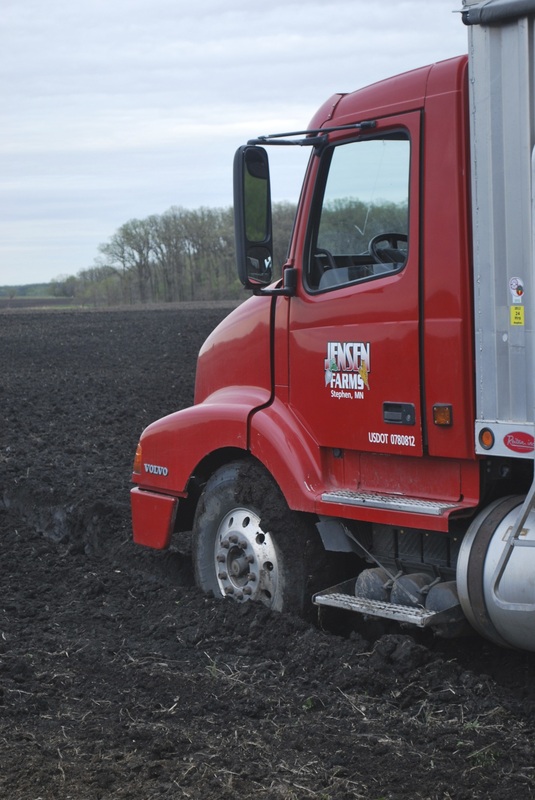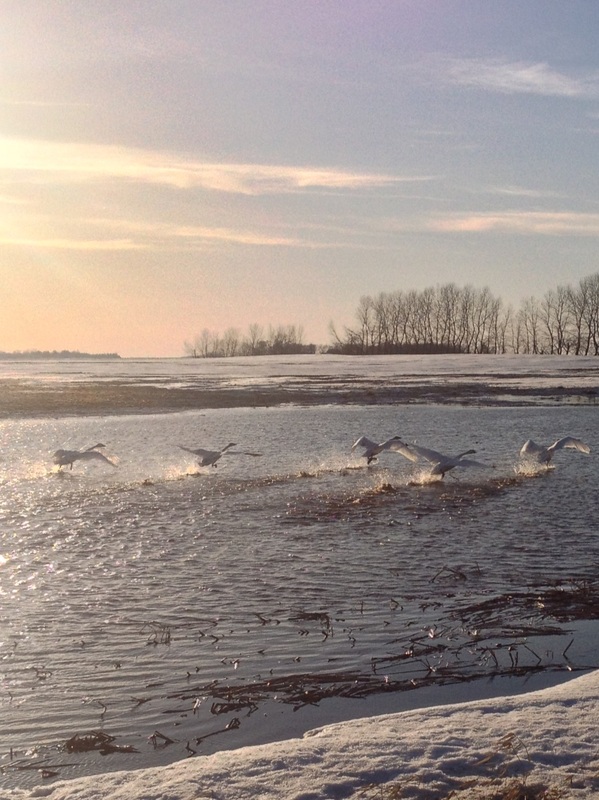We have a little bit of prevented planting on our farm. Although we didn't get everything planted, I feel we are one of the lucky ones. Farmers west of us, and into Eastern North Dakota were much wetter, and had to leave much more ground bare.
The decision on when to stop planting is a personal one. Federal crop insurance gives you "final planting dates". If you plant after those dates, your crop insurance coverage declines, but if Mother Nature cooperates during the summer, you could still get a good crop. The final planting date for soybeans in my area was June 10, but many farmers were planting on June 16, if the ground was ready. Some of the fields are still very wet and muddy.
What has me a little depressed is that we are starting the year collecting crop insurance, and whenever you collect crop insurance it means things are below average. Crop insurance is making headlines as Congress debates the validity of the program. If I believed everything I read, I'd be convinced that crop insurance is guaranteeing huge profits for wealthy farmers. It's probably time for a reality check.
Most farmers buy crop insurance at 65-70%. You can purchase up to 85% coverage, but it's very expensive. So farmers are buying insurance to guarantee themselves 70% of their revenue. Each farmer has a personal revenue number based on their historic yields, and the prices are set each year.
If you get a paycheck, imagine cutting it 30% this year. After dipping into your savings account and cutting some expenses, you could probably make it through the year. That is what farmers do during bad years. Crop insurance is not designed to bring farmers back to 100% revenue, but help cushion the blow of a bad crop, and give them a guarantee minimal income.
In farm management, it is advised to have 30% of your gross revenue as cash. For example, if a farm grosses $100,000, it should have $30,000 in cash. One of the reasons for that recommendation is crop insurance. Between your crop insurance guarantee, and your savings account, farmers should be able to make it through a bad year. Now if it happens two years in a row, the farm will have some major problems.
The fact that my farm will collect crop insurance in 2013 just isn't how I hoped to start the year. Just imagine collecting a paycheck, and in January you got a 30% cut. You still hope for a pay raise later in the year, and it's possible, but there's that nagging voice in the back of your mind that keeps remembering the first paycheck. That's how I feel. There's always hope, but things have not started off well in 2013.


 RSS Feed
RSS Feed